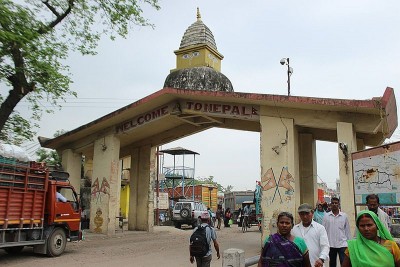New Delhi, Oct 30 : India and Nepal are two nations with one people and for this reason both sides should work on resolving their differences, including the border row, through talks and work towards a positive transformation in ties, experts from both countries said.
Former Indian Army officer and ex-Assam Rifles director general Lt. General Shokin Chauhan said: “Nepal and India have a shared history, shared geography, shared culture, and shared water.”
Noting that military diplomacy has been the bedrock of bilateral ties, Chauhan said the Indian Army had helped reorganise the Nepali Army in the 1950s after Communist China’s Mao Zedong threatened Nepal’s sovereignty by calling it to be part of the five fingers of China that need to be reunited with the mainland.
“No matter which frame you are in, there is a feeling of oneness between armies of both the countries, with Nepal alone boasting of 128,000 military pensioners, making up a huge number among Nepal’s one million population,” he said.
Talking about the “common destiny” of the two nations, Chauhan said Nepal needs to be sensitive to the security concerns of India and those concerns need to be addressed. “We (the two nations) need to stay together,” he concluded.
He was speaking at a webinar on ‘Nepal-India Strategic Convergence: Enriching the Partnership’ organised by Delhi-based think-tank Law and Society Alliance and Defence Capital on October 28.
Aimed at strengthening the bilateral relationship between both the countries that had shown signs of fraying lately, Indian Army chief General Manoj Mukund Naravane is visiting Nepal for two days from November 4 to November 6. He will meet his Nepalese counterpart General Purna Chandra Thapa, Nepal’s President Vidya Devi Bhandari and Prime Minister KP Sharma Oli.
Talking about the India-Nepal relationship, Minendra Rijal, a former Nepal minister and present member of the Nepali federal parliament, said Nepal, though a smaller nation than both India and China, was well aware of the implications of its diplomatic decisions.
He acknowledged that India and Nepal do share “a special, deep, and profound relationship” and very few nations have such ties.
On Nepal’s perception of India’s economic growth, he said, “India’s population is 40 times higher than Nepal’s and its economy is a hundred times bigger than Nepal’s. The median age is much lower in India as compared to China. Hence, in the next 20-25 years, India could become the biggest economy in the world. We are mindful of these facts.”
Rijal said: “In the future, Nepal can certainly be an especially important partner for India. There is tremendous potential in the management of water resources by both countries. India can have a tremendous advantage from harnessing hydroelectricity in Nepal. The water deficiency of North India can be overcome by Nepali help.”
Former Nepali Army officer Major General (retd) Binoj Basnyat said the recent visit by India’s Research and Analysis Wing chief Samant Goel was an important development in the India-Nepal bilateral relationship. He also appreciated the upcoming scheduled visit of the Indian Army chief.
Goel visited Kathmandu last week where he met the Nepalese Prime Minister and other dignitaries.
Goel’s discussions with Oli focussed on not allowing any interruption in the friendly relations between Nepal and India and resolving all outstanding issues through dialogue and continuing mutual cooperation.
“The visits signify a couple of things – the potential of military bonds; military diplomacy has been the backbone of our relationship; understanding of India’s security concerns; and China’s growing influence,” Basnyat said.
The former Nepali Army officer said no nation can change its geography and cultural unity with its neighbourhood.
“We are old friends but in new situations we need to sit down together to ensure that people from two countries shall enjoy good ties in the times to come,” he concluded.
Disclaimer: This story is auto-generated from IANS service.

